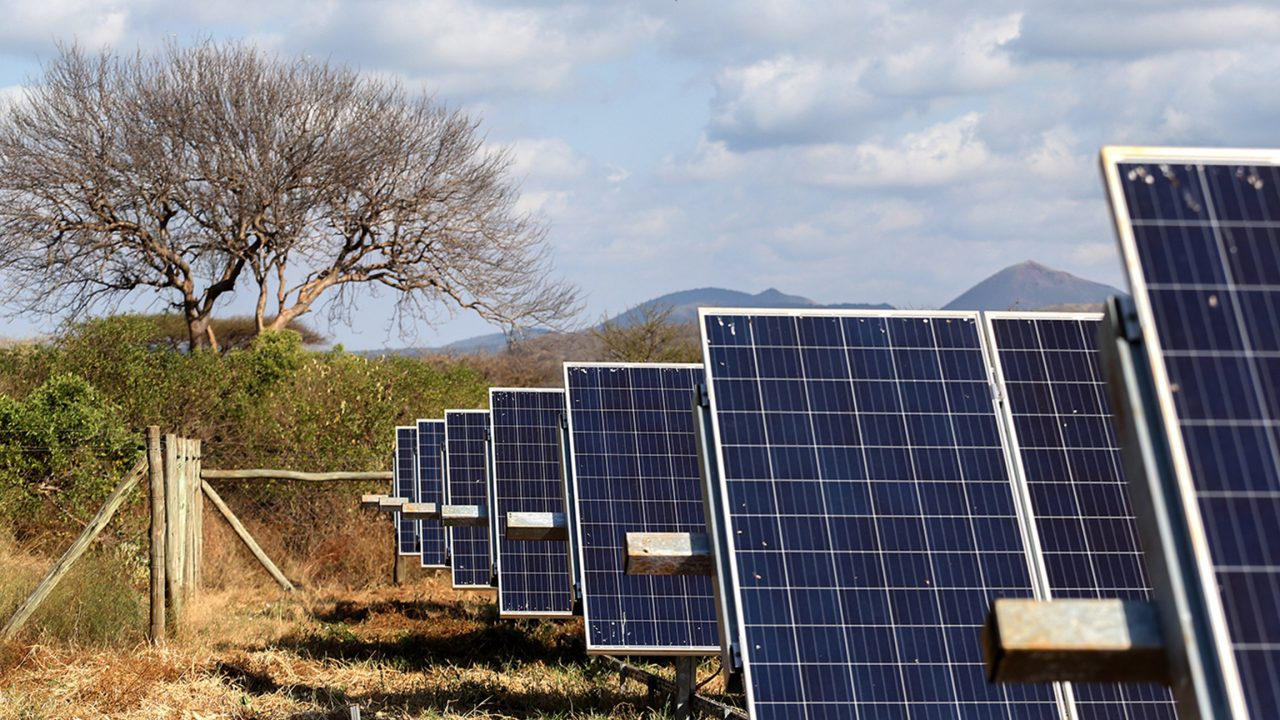

Energy Efficiency
14 January 2020
As business and political leaders prepare to meet in London for the UK-Africa Investment Summit Richard Abel, Managing Director at UK Climate Investments (UKCI) shares his perspective on some of the trends shaping Africa’s growing clean energy sector.
The economic development that has occurred across Africa since I made my first visit in 1995 has been incredible, though there is still a long way to go to get many people up to an acceptable standard of living. The pace at which change is occurring shows no sign of slowing, with a growing and increasingly urbanised population to transform the continent’s energy landscape – generating new opportunities for renewables investors, developers and operators.
By 2050 the number of people living in sub-Saharan Africa is expected to double, accounting for more than half of the world’s total population growth over the next three decades1. This population explosion will see the number of people living in the region’s urban centres also double2, with an additional one billion people fuelling the expansion of more megacities rivalling Kinshasa and Lagos.
Growing alongside these communities will be their demand for energy.
Electricity production must be at least doubled in the next 10 years to provide full electricity access to all Africans3. When coupled with increased industrial and residential energy demand, sustaining the region’s continued development will depend on energy supply keeping pace.
Africa has the richest solar resources on the planet, however, only 5 GW of solar capacity is installed on the continent today4. As technology costs continue to come down and an increasingly supportive policy environment emerges across the region, we see a significant opportunity for renewables investors to help bridge the funding the gap – deploying new green generation and storage capacity that will underpin more sustainable growth in Africa.
Home to more than half of the world’s population currently living without access to electricity5, sub-Saharan Africa has the potential to become the next investment destination for a growing global pool of sustainable capital.
The amount of capital currently managed under sustainability strategies stands at over $US30 trillion – accounting for around one third of all managed capital globally6. This figure is only set to grow as investors like pension funds and sovereign funds seek to align their capital allocation with their values and policy objectives. This growth trajectory was underlined by a recent report by Macquarie Infrastructure and Real Assets which found 91 per cent of investors expect to increase their focus on Environmental, Social and Governance (ESG) considerations over the next five years7.
Renewable energy projects in Africa should be front of mind as institutional investors aim to make a more positive impact on society and the environment.
Accessible, reliable, affordable, and sustainable electricity will underpin more inclusive economic and social development across the continent – meeting the currently underserved electricity needs of households, industry, and essential community services like hospitals and schools. Investors in the sector will also be attracted to the prospect of equipping economies most vulnerable to the effects of climate change with the infrastructure they need to reduce carbon emissions and pursue clean growth. These important social and environmental benefits can also be realised whilst supporting the development of local supply chains and high-quality jobs in the region.
An emerging green finance market will also create new opportunities to invest in Africa’s renewables sector.
Last year we announced that UKCI would cornerstone Revego, a “yieldco” vehicle that aims to accelerate the installation of renewables in sub-Saharan Africa. Common in more established markets, vehicles like Revego invest in operating green energy projects – allowing developers to unlock and recycle capital whilst creating opportunities for long-term investors to access the sector.
We expect green finance initiatives like this one, which are often pioneered in the City of London, to find their place on the continent over the next five years. In doing so, they will accelerate the maturation of Africa’s renewables sector and allow it to achieve scale. We believe this will be a critical step if African countries are to attract the required investment in their renewables sectors and harness the commercial potential arising from the low-carbon transition.
Africa is on the verge of a renewables revolution and the UK has always been at the forefront of innovation in green finance – the UK-Africa Investment Summit is an important moment in our ongoing partnership. A partnership that will support one of the world’s fastest growing regions to pursue a clean energy future whilst creating new opportunities for renewables investors, developers and operators.